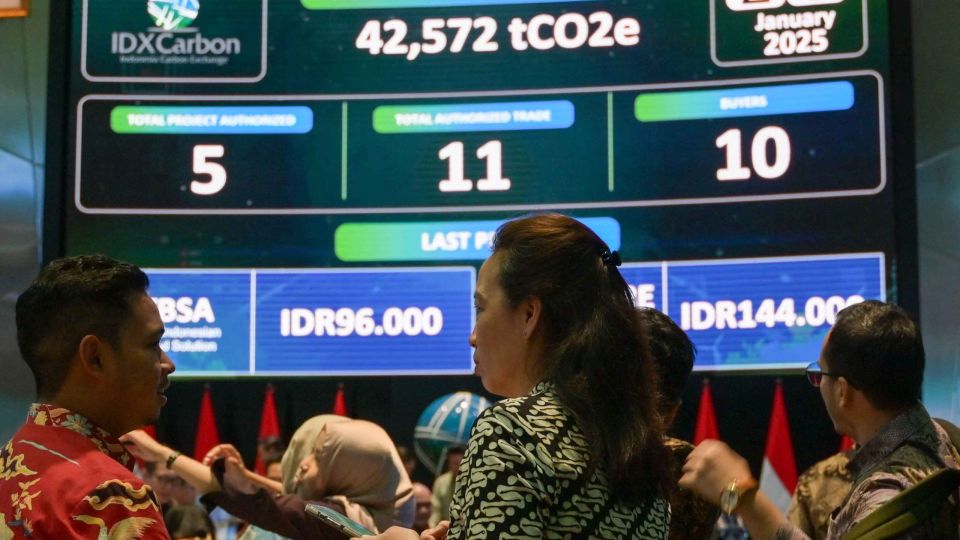April 9, 2025
JAKARTA – The Indonesia Stock Exchange (IDX) Composite index plunged 9.2 percent to 5,912 points shortly after opening at 9 a.m. on Tuesday, triggering an automatic 30-minute trading halt. By 10:30 a.m., the market had slightly rebounded to 5,971, narrowing the daily drop to 8.31 percent.
The sell-off did not come as a surprise to many analysts, given the recent steep decline seen in stock markets in the region and the world as investors are rattled by fears that escalating United States import tariffs could dampen global economic growth and squeeze corporate profits.
In the two days following the announcement by US President Donald Trump, US markets saw US$6.6 trillion in value wiped out. The Nasdaq tumbled 11.4 percent, the S&P 500 lost 10.5 percent, and the Dow Jones fell 9.3 percent.
However, some calm returned on Monday, with the Nasdaq inching up 0.1 percent, while the S&P 500 and Dow Jones posted smaller declines of 0.23 percent and 0.91 percent, respectively.
The ripple effect has been felt across Asia.
Following the announcement, Hong Kong’s Hang Seng Index nosedived 14.5 percent, Japan’s Nikkei 225 has shed 12.8 percent, and China’s Shanghai Composite has slipped 7.6 percent, with most of the damage occurring on Monday.
A mild recovery followed on Tuesday morning, with these indexes rising by 2 percent, 6.08 percent and 0.78 percent, respectively.
Read also: IDX to face rocky start after long holiday as tariff fears grip investors
While the IDX was technically shielded from the initial market rout due to an 11-day closure for the Nyepi and Idul Fitri holidays, analysts had warned it would not remain unscathed.
Their prediction proved accurate as the local index took a delayed hit on Tuesday.
Just before trading resumed after the long holiday, the IDX revised its circuit breaker rules, first introduced during the COVID-19 crisis, to better accommodate current volatility.
The threshold for the first 30-minute trading halt was widened from a 5 percent drop to 8 percent. A second 30-minute pause will now be triggered at a 15 percent loss, up from the previous 10 percent. A 20 percent plunge could lead to a full-day trading suspension.
Read also: Trump threatens to hike China tariffs further as market plunge continues
In addition, the bourse tightened its auto-rejection lower bound (ARB), the limit on how far a stock can fall in a single day, to 15 percent across the board. Previously, stocks were allowed to decline by as much as 35 percent for lower-priced shares, and 25 to 20 percent for higher-priced ones.
“These measures were taken to manage market volatility and safeguard investors,” said IDX corporate secretary Kautsar Primadi Nurahmad in a statement on Tuesday. “The revised trading halt scheme also provides more room for liquidity, allowing investors time to reassess their strategies based on the latest public information.”


